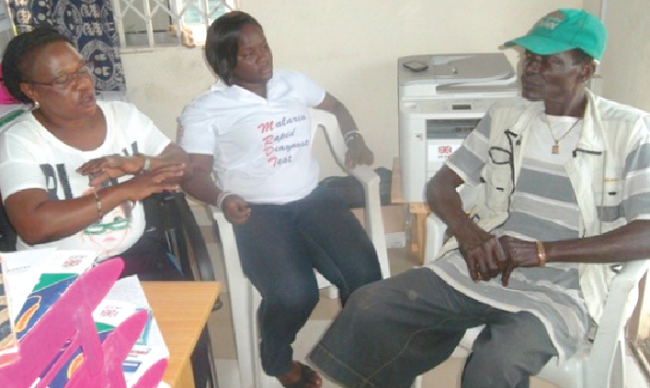This year’s Upper West Regional (UWR) Tuberculosis (TB) Control Day has been marked in Wa with a call on people with protracted cough to report to the nearest health facility.
At a media conference, the UWR Director of Health Services, Dr Winfred Ofosu, said this was to determine whether they were suffering from TB which was on the increase in the region.
He noted that the disease was curable and its treatment absolutely free and as such, they should feel free to report as early as possible for treatment.
He, however, cautioned that the disease was infectious if not detected early and treated.
“The TB germ is commonly spread from an infected person to an uninfected person through coughing, sneezing and spitting. The infection can be contracted during close contacts. However, one needs a prolonged and close social contact with an infected person to develop the disease, such as sharing the same room with the infected individual for a considerable period of time,” he stated.
Stigmatisation
Once detected and “the person put on medication, the disease is no more infectious, so family members should advise those coughing for two weeks or more to seek medical assistance to avoid them from spreading the disease among others, he advised.
Dr Ofosu called for the end of unnecessary stigmatisation and discrimination of those affected or those suspected of having the disease, since it would force them to recoil into their shelves, thus contributing to the increase of the disease.
Giving the statistics, he said the disease had been on the increase over the last three years.
In 2014, the total number of cases recorded was 307. It was followed by 356 cases in 2015 and 378 cases in 2016.
Last year for instance, he said, the Lawra District topped the list with 51 cases, followed by Nandom District with 49 cases and Nadowli-Kaleo District with 43 cases.
TB project
In a related development, the Hope for Future Generation (HFFG), a gender-centred health-based non-governmental organisation (NGO), in collaboration with the Ghana Health Service (GHS) and queen mothers in the Brong Ahafo Region, is implementing a project which educates and refers suspected TB cases for confirmation and treatment at Directly Observed Treatment (DOT) centres.
The project was as a result of the consistent rise in reported TB cases in the Brong Ahafo Region, as well as the challenges confronting the management of TB in the region.
Some of the challenges were low detection of cases as compared to the targeted population of 100,000 high death rate and high defaulter rate.
Under the implementation, HFFG embarked on outreaches, contact tracing, radio programmes and monitoring at various places to advocate and disseminate facts, signs and symptoms of TB to the public.
The project was implemented through selected queen mothers in 10 districts in the Brong Ahafo Region.
Other activities embarked on were monthly media talk shows on basic facts on TB and TB management, education, screening and sputum collection at prisons at Asutifi North and contact tracing in five districts, as well as monitoring and support visits.

